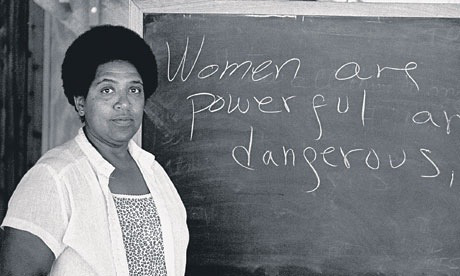Teaching: Two Crucial Questions

Photograph: Robert Alexander/Getty Images.
This semester, I have been thinking about teaching and what exactly we teach in Women’s Studies. As I have said before, I have more questions than answers. Generally, I am comfortable with that situation.
Still, I want to synthesize more of what is revolutionary and transformative in teaching Women’s Studies. One concrete item that I teach, which is outside my areas of intellectual concern (literature and history, though I recognize my persistent concern with the material conditions of writers) that women must negotiate their salaries, not only when starting jobs but also every year, repeatedly asking for raises. This is, to me, a crucial way to address the pay gap between men and women.
In all of my classes, I talk to students about negotiating salaries and hourly wages. I encourage them to ask for more and provide concrete strategies about how to do that. Many students do go out and ask for a raise; almost always they get one. It is a small piece of information and in someone ways not particularly revolutionary because it places the onus on individual women, but it is a concrete action. Students greet it that way and are happy to have an action, something they can do and see the results immediately. Here is a strategy we can engage to create change and make our lives better. A win all around.
While this may be a small step, a minor component of my teaching method, a larger question emerged this semester that I believe is crucial to feminist pedagogy. That question is:
What are people not telling you? Why are people invested in you not having that knowledge?
These two questions are central to what we teach students to ask themselves and the people around them in Women’s Studies classes. What are people not telling you? What information is being kept from you? What do people not want you to know?
There are many things people do not want us know. Why are men paid more than women? Why does the pay gap persist even when we recognize it is wrong? Why do some people understand how to negotiate for more money, but other people do not?
Then after recognizing the information that we are not given, either by the conscious or unconscious omission of this information, we must ask, why do we not have this information? Why do people not want us to know this information? Is it conscious? Is it unconscious? What are the implications of these different intentions?
Thinking about these questions is central to Women’s Studies. Our work in the discipline is to engage students to ask these questions persistently and to grapple with these questions regularly. We may not find all of the answers to these questions, but we must ask them, grapple with them, and return them.
Filed under: lesbian, progressive activism, teaching Tagged: activism, economics, feminist pedagogy, money, teaching, Women's Studies





